Feminism is in fashion - tangibly. With every high street shop selling t-shirts baring feminist slogans, Instagram is awash with influencers wearing their pro-female feels. It’s an interesting zeitgeist, given the fashion industry can receive a bad rap where feminism is concerned.
The Devil Wears Prada will have you believe fashion is a bitchy industry, built upon female-to-female competition. The relationship between protagonist Andy Sachs and her colleague Emily is fraught and wholly unsupportive, whilst Runway magazine editor Miranda Priestly shows only a small flicker of humanity as the book draws to a close.
The media will have you believe fashion is responsible for female body dysmorphia; fashion week wouldn't be fashion week without some tired criticism levelled at designers for sending gaunt girls down the catwalks. And the models are often stereotyped as half-starved characters with low IQ’s, exploited at the hands of the industry. The reality? In my experience, the above preconceptions couldn’t be more wrong.
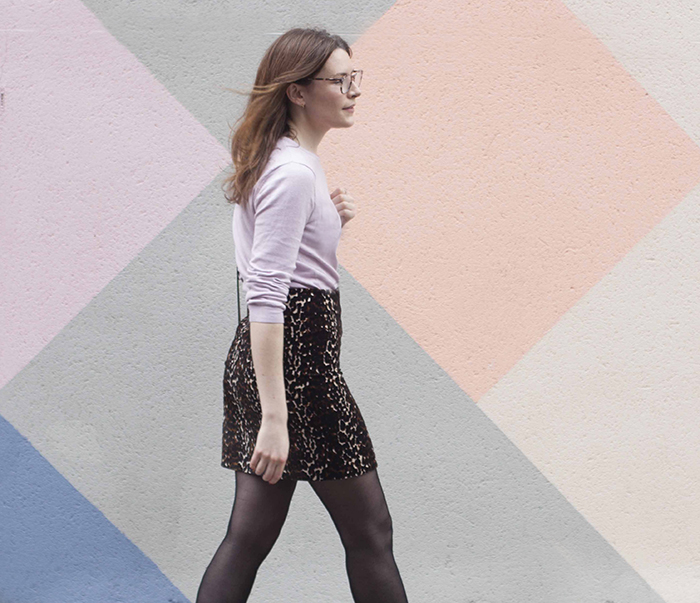
I'm wearing: Skirt - Havren (old) similar | Crew neck jumper - WoolOvers c/o | Glasses: Bailey Nelson UK | Bag: Loxley England | Shoes: Topshop
I can assure you that if the fashion industry was nearly as bitchy and as the Devil Wears Prada portrays, it would grind to a halt. Budgets are tight and the teams behind the majority of fashion brands are small. These businesses survive, in part, thanks to camaraderie and team work. I have worked in predominantly female fashion businesses for close to a decade, and I can’t emphasise enough how instrumental inter-female camaraderie has been in my career. My colleagues have compassionately seen me through professional fuck-ups and desk-side meltdowns; there’s a real feeling of women empowering other women.
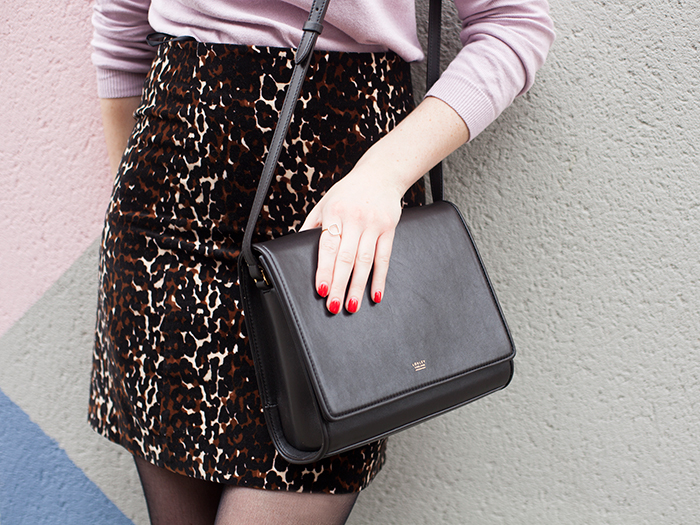
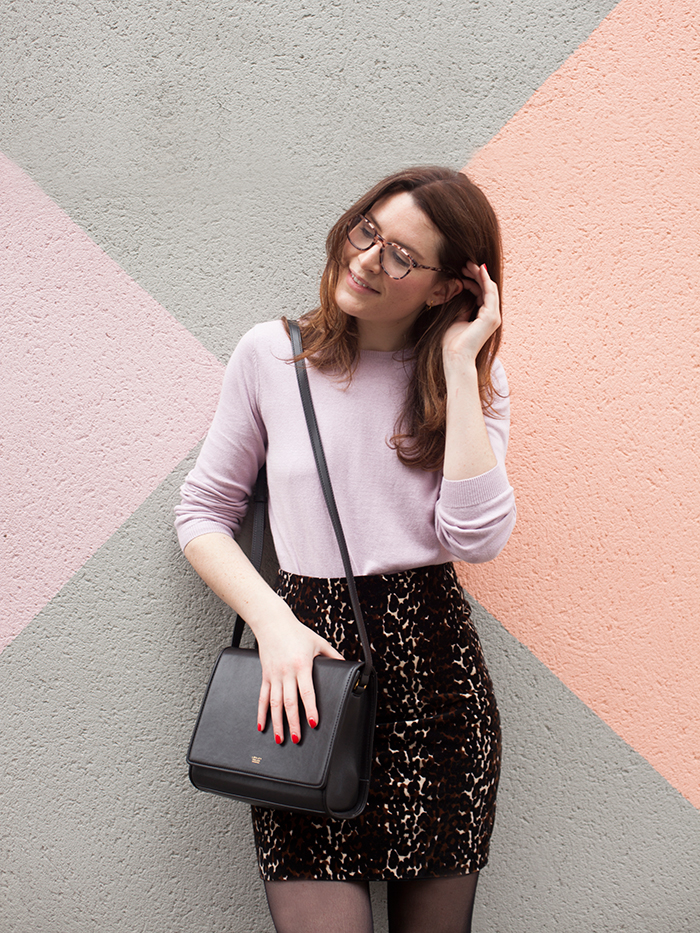
And to address the discussion that fashion perpetuates body dysmorphia - you only have to observe the diversity on the FROW at London Fashion Week to see how inclusive fashion is. Yes, the models on the catwalk are lithe, but fashion industry people come in all shapes and sizes. And we do eat! The majority of fashion parties I have attended offer super-indulgent catering; truffle pizza, macarons, copious glasses of prosecco...fashion cannot live on green juice alone.
Let’s talk about the common consensus that models are professional clotheshorses. Through casting and booking models regularly, I have learnt that whilst great looks will land a job, proactivity and personality ensure repeat work. Most models are funding academic degrees; their life aspirations go beyond catwalks and campaigns. These women are the epitome of feminism; smart, hard-working. And a good female model is compensated well; modelling is one of the few industries where women earn more than men across the board - up to 75% estimates one model agent.
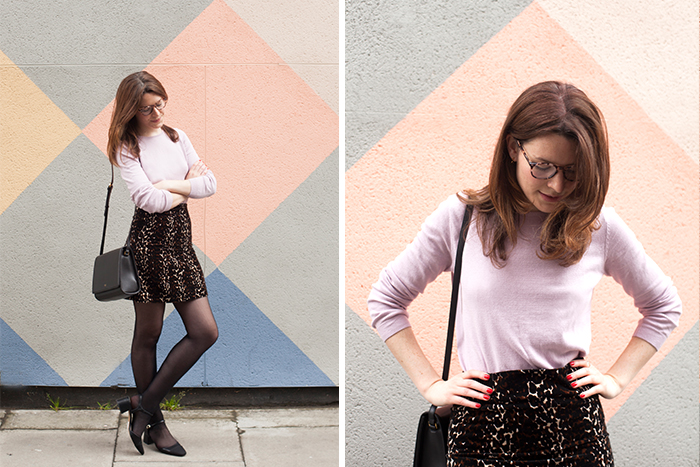
Of course some female-to-female competition does it exist in the industry. I’ve met the odd blogger, colleague and fashion PR who has thrown extreme shade in my direction. But they are few and far between. Succeeding in fashion is all about building your contacts and the smartest seldom burn bridges.
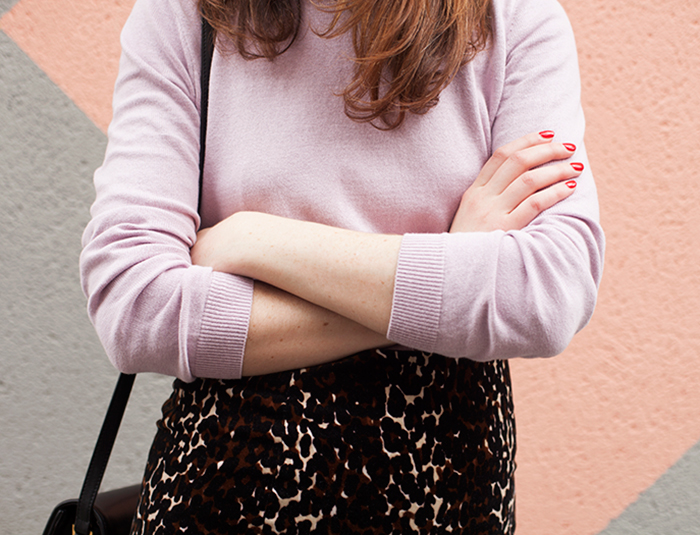
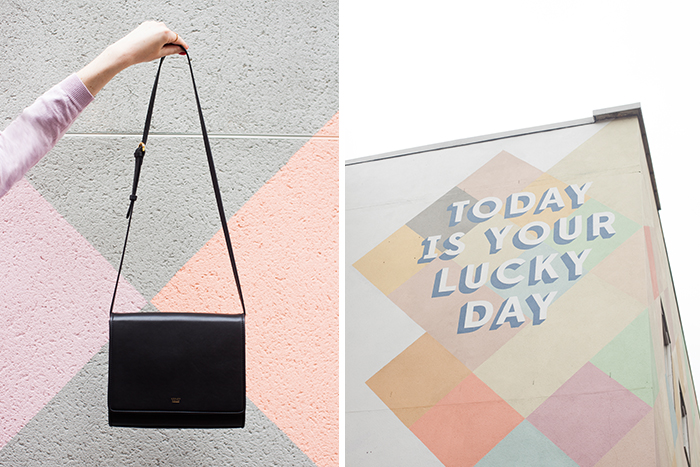
Perhaps the staff at British Vogue may tell a different story. The bigger the brand, the bigger the stakes, the bigger the pressure. However, I passionately believe that my industry is empowering women, given it is one of the few where women are so visible in top jobs (in 2016, 47% of designers showing in New York and London were female according to the BOF. I can’t think of many industries where it’s a near 50:50 split at the top). So by all means purchase and wear a feminist slogan t-shirt with pride; there's so much more to this zeitgeist than a passing trend.
Photos: Natasha Marshall
The Devil Wears Prada will have you believe fashion is a bitchy industry, built upon female-to-female competition. The relationship between protagonist Andy Sachs and her colleague Emily is fraught and wholly unsupportive, whilst Runway magazine editor Miranda Priestly shows only a small flicker of humanity as the book draws to a close.
The media will have you believe fashion is responsible for female body dysmorphia; fashion week wouldn't be fashion week without some tired criticism levelled at designers for sending gaunt girls down the catwalks. And the models are often stereotyped as half-starved characters with low IQ’s, exploited at the hands of the industry. The reality? In my experience, the above preconceptions couldn’t be more wrong.

I'm wearing: Skirt - Havren (old) similar | Crew neck jumper - WoolOvers c/o | Glasses: Bailey Nelson UK | Bag: Loxley England | Shoes: Topshop
I can assure you that if the fashion industry was nearly as bitchy and as the Devil Wears Prada portrays, it would grind to a halt. Budgets are tight and the teams behind the majority of fashion brands are small. These businesses survive, in part, thanks to camaraderie and team work. I have worked in predominantly female fashion businesses for close to a decade, and I can’t emphasise enough how instrumental inter-female camaraderie has been in my career. My colleagues have compassionately seen me through professional fuck-ups and desk-side meltdowns; there’s a real feeling of women empowering other women.


And to address the discussion that fashion perpetuates body dysmorphia - you only have to observe the diversity on the FROW at London Fashion Week to see how inclusive fashion is. Yes, the models on the catwalk are lithe, but fashion industry people come in all shapes and sizes. And we do eat! The majority of fashion parties I have attended offer super-indulgent catering; truffle pizza, macarons, copious glasses of prosecco...fashion cannot live on green juice alone.
Let’s talk about the common consensus that models are professional clotheshorses. Through casting and booking models regularly, I have learnt that whilst great looks will land a job, proactivity and personality ensure repeat work. Most models are funding academic degrees; their life aspirations go beyond catwalks and campaigns. These women are the epitome of feminism; smart, hard-working. And a good female model is compensated well; modelling is one of the few industries where women earn more than men across the board - up to 75% estimates one model agent.

Of course some female-to-female competition does it exist in the industry. I’ve met the odd blogger, colleague and fashion PR who has thrown extreme shade in my direction. But they are few and far between. Succeeding in fashion is all about building your contacts and the smartest seldom burn bridges.


Perhaps the staff at British Vogue may tell a different story. The bigger the brand, the bigger the stakes, the bigger the pressure. However, I passionately believe that my industry is empowering women, given it is one of the few where women are so visible in top jobs (in 2016, 47% of designers showing in New York and London were female according to the BOF. I can’t think of many industries where it’s a near 50:50 split at the top). So by all means purchase and wear a feminist slogan t-shirt with pride; there's so much more to this zeitgeist than a passing trend.
Photos: Natasha Marshall


No comments:
Post a Comment